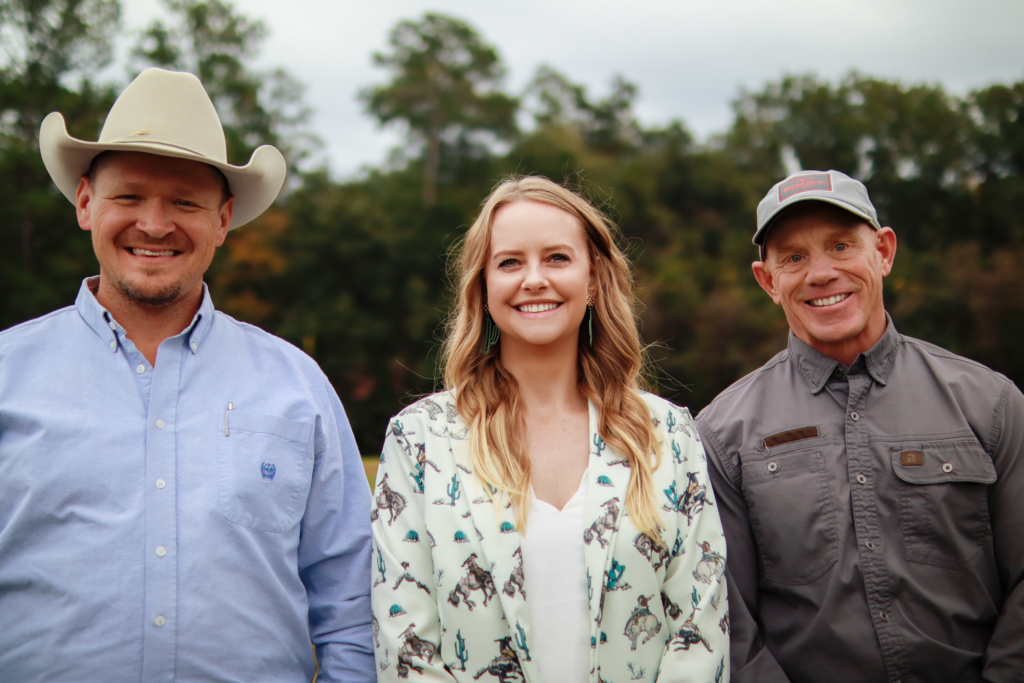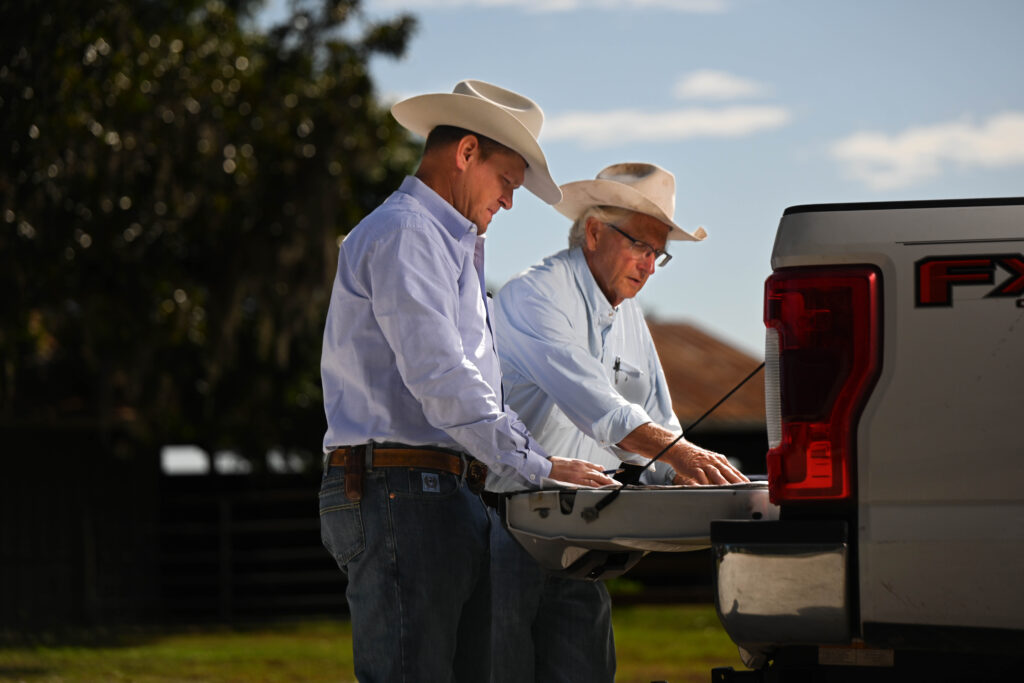Multi-Year Project Seeks to Improve Cattle and Land Management
Florida is home to diverse natural landscapes and resources, including vast expanses of grasslands that serve as host to many of the state’s cattle ranches. Maintaining the diversity of Florida’s ecosystems requires striking a balance between Florida’s agricultural productivity and preserving our unique natural resources. An increasingly important means for achieving that balance is ensuring that effective ranchland grazing management strategies play a critical role in maintaining natural and working lands.
Preserving the state’s natural and agricultural lands is at the core of what the Florida Conservation Group (FCG) does. The group has now partnered with Common Ground Ecology (CGE) to implement a wide-ranging, multi-year project to assist central and southwest Florida landowners in their grazing lands management planning. A team of qualified Ranchland Management Specialists has been assembled to assist ranchers with the evaluation of land for improved grazing management practices.
Cattle ranches contain much of Florida’s remaining native habitat in south-central and southwest Florida. Despite its burgeoning human population, Florida ranks ninth in the nation in beef cattle production, and these ranches are also where wildlife and native plant populations thrive in the southern half of our state. In fact, the future of much of Florida’s wildlife depends on the role and practices of cattle ranches.
By using more than 20 years of combined experience in grazing and ranchland management planning, the Ranch Management Team will provide prescribed grazing technical assistance directly to local ranchers within the Natural Resources Conservation Service (NRSC) network. The implementation of management and grazing plans that employ best management practices, including rotational grazing and prescribed fire, can yield optimal results for ranchers and the ecosystem. The mix of native habitats including wetlands and forests found on ranchlands provide food and cover that support a diversity of wildlife species. The open herbaceous uplands and wetlands found on Florida ranches provide essential habitat to a host of prairie and wide-ranging wildlife species including many federal and state listed species.
Grazing lands management significantly influences wildlife habitat and maintains habitat conditions and diversity needed to provide high quality habitat for myriad native Florida wildlife species. Grazing management benefits to ranchers are just as significant, as the prescribed practices can decrease soil compaction, minimize nutrient run-off and improve the quality and quantity of surface water.
Grazing lands management is a key component for protecting our natural resources, and ranchers play a key role in safeguarding Florida’s ecosystems, wildlife, and water. As Florida’s population and development continues to grow, collaborative efforts between ranchers and conservationists will sustain beef cattle production and environmental stewardship.
Meet the Ranch Management Team:
Joe Hughes: Joe joined FCG in April 2024. He is a native Texan with a background in Range Science and Land Reclamation and Remediation. Joe earned his Bachelor of Science degree in Range Science from Texas A&M University and his Master of Education degree in Exercise Physiology from the University of Texas at Austin.
Joe served as a Rangeland Management Specialist with the Natural Resource Conservation Service and as a Range Technician with the Bureau of Land Management. He has extensive experience in the development of resource management and conservation plans, inventory and utilization monitoring for analyzing ranch resources and the planning and designing of prescribed grazing management plans for ranchers and landowners.
Courtney Darling: Courtney Darling earned both her bachelor’s degree in Sustainable Food Systems and her master’s degree in Agronomy, with a specialization in weed science, from the University of Florida. Her graduate work focused on the tolerance of Bermudagrass to glyphosate and use of ALS-inhibiting herbicides on perennial grass control.
Courtney served as the UF/IFAS Suwannee County Agriculture and Natural Resources Extension Agent with a concentration in livestock, forages, and natural resources. She later transitioned to her role as Communications Manager at the Florida Farm Bureau Federation. There she coordinated its statewide County Alliance for Responsible Environmental Stewardship (CARES) program which publicly recognizes farmers and ranchers who strive to protect Florida’s natural resources through the implementation of best management practices.
Erik Moretuzzo: Erik Moretuzzo is a Ranchland Management Specialist who earned his undergraduate degree in Environmental Management in Agriculture and Natural Resources from the University of Florida. Erik also received his graduate degree in Agronomy and Soil Science from Auburn University.
His previous work experience includes serving as a BMP Technician with the Hillsborough Soil and Water Conservation District. Erik also performed land management on environmentally sensitive lands with prescribed fire, chemical and mechanical methods for both the Hillsborough and Polk County Environmental Lands Management.
Erik maintains his position as the current President of the Hillsborough Cattlemen’s Association and serves on the Board of Directors for the Florida Cattlemen’s Foundation, the Florida Strawberry Festival Beef Breeds Show, the Hillsborough Beef Expo and the Hillsborough Cattlemen’s Foundation.


